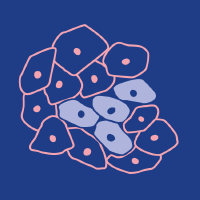
Cancers, Vol. 12, Pages 893: Mechanisms of Resistance to NK Cell Immunotherapy
Cancers doi: 10.3390/cancers12040893
Authors:
Sordo-Bahamonde
Vitale
Lorenzo-Herrero
López-Soto
Gonzalez
Immunotherapy has recently been a major breakthrough in cancer treatment. Natural killer (NK) cells are suitable targets for immunotherapy owing to their potent cytotoxic activity that may target cancer cells in a major histocompatibility complex (MHC) and antigen-unrestricted manner. Current therapies targeting NK cells include monoclonal antibodies that promote NK cell antibody-dependent cell-mediated cytotoxicity (ADCC), hematopoietic stem cell transplantation (HSCT), the adoptive transfer of NK cells, the redirection of NK cells using chimeric antigen receptor (CAR)-NK cells and the use of cytokines and immunostimulatory drugs to boost the anti-tumor activity of NK cells. Despite some encouraging clinical results, patients receiving these therapies frequently develop resistance, and a myriad of mechanisms of resistance affecting both the immune system and cancer cells have been reported. A first contributing factor that modulates the efficacy of the NK cell therapy is the genetic profile of the individual, which regulates all aspects of NK cell biology. Additionally, the resistance of cancer cells to apoptosis and the immunoediting of cancer cells, a process that decreases their immunogenicity and promotes immunosuppression, are major determinants of the resistance to NK cell therapy. Consequently, the efficacy of NK cell anti-tumor therapy is specific to each patient and disease. The elucidation of such immunosubversive mechanisms is crucial to developing new procedures and therapeutic strategies to fully harness the anti-tumor potential of NK cells.

Δεν υπάρχουν σχόλια:
Δημοσίευση σχολίου